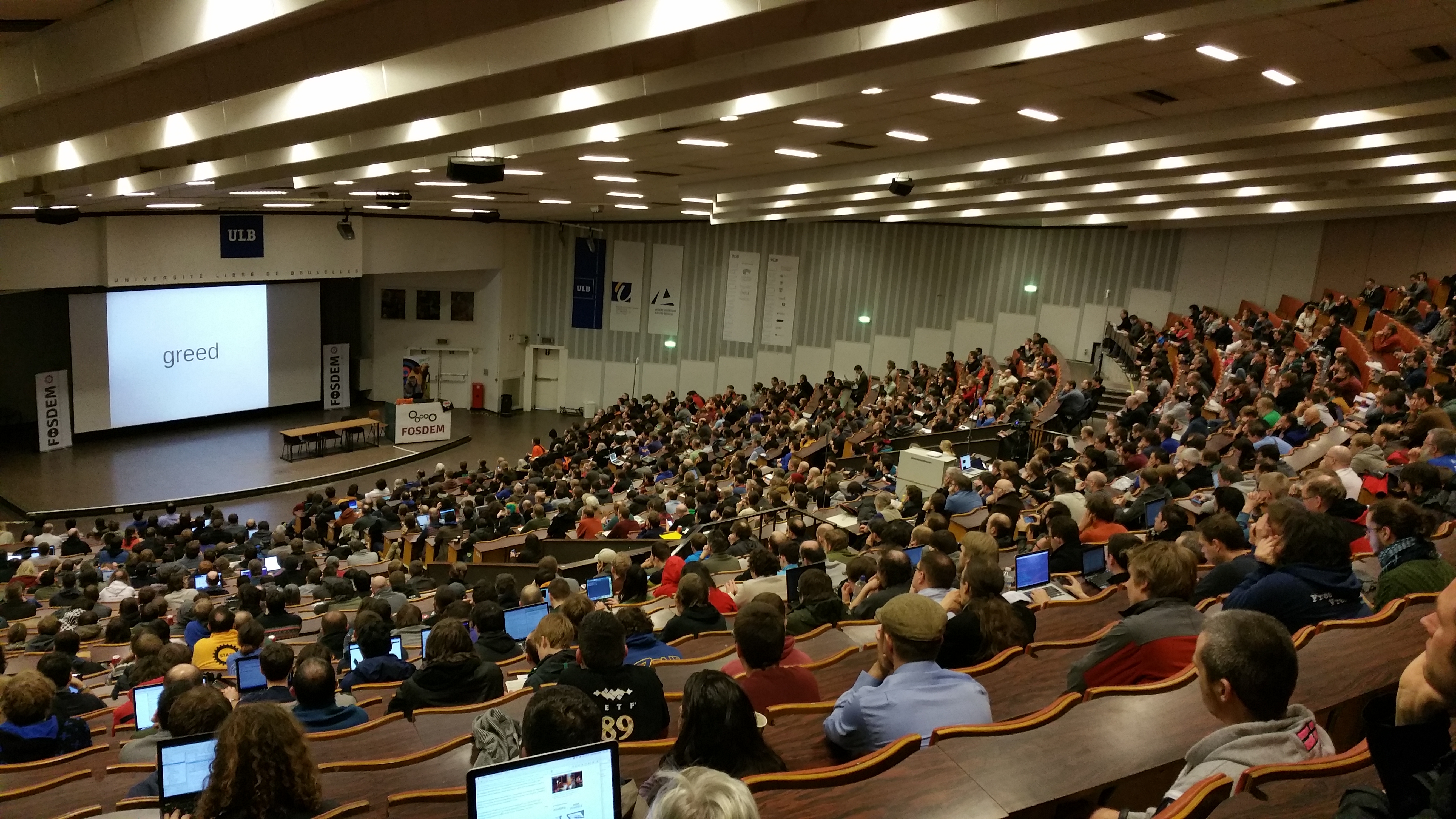Eventually I found that PHP UK were offering diversity scholarships for the conference, to the tune of travel, accommodation, and the entry fee. That sounds great, but I was pretty certain that I wasn't going to get one, especially as a student when the conference is aimed at professional developers. Well, turns out that if you don't ask you don't get.
Fast forward to February, and I'm on the way to a campaign reception at the Chiswell Street dining rooms with the other scholarship awardees and conference presenters - not only was I at the conference, but I had a unique opportunity to network with some of the best minds of the PHP world! After an insightful evening of wine, food, and excellent advice it was time to retire to the apartment I was staying in for the duration of the event with my roommate (another student awarded a scholarship).
Some of the main track conference talks blew me away. Compared to what I had been to before - FOSDEM and an 'unplugged' conference by RSAC - this was a big budget event. This also meant that there were some talks which one might not expect at a tech conference. There were talks about diversity in the industry, impostor syndrome, and mentoring. These are all really important subjects, and ones which nigh impossible to pick up from a book. I think more conferences should have these types of 'soft' talks (In fact, thinking back to RSAC unplugged the best session by far was Alexis Conran of the Real Hustle describing the psychology of scamming and deception, and not the ones by various heads of cyber security/research).
Aside from being harder to learn, these topics are the ones which get left out (in academia anyway, it was better when I was at a startup) in favour of technical skills. The thing is, I know how to find out about tech stuff - I can use Google to help me figure out that I can use Docker to ship my app - but I'm far less likely to google why it is that all my colleagues seem to know more than me and how on earth I got through the hiring process without them seeing through my fraud. Wait, did I just say that out loud?
To wrap up, I'm incredibly grateful to PHP UK for giving me this opportunity. I didn't think it would be possible to make people feel included in a community of 700 where, to be honest, we had very little in common. But it's worked! One of the conditions on receiving the scholarship was that I pay it forward one day, and you know what? I will. After the conference it dawned on me that one day I'll be able to provide the same eye opening experience to someone, and that's incredible. And also thanks to my mentors this time around, so I guess it's self perpetuating.
(I mentioned RSAC Unplugged a bit here, so I had to include the awesome picture they made of all the conference talks)
















